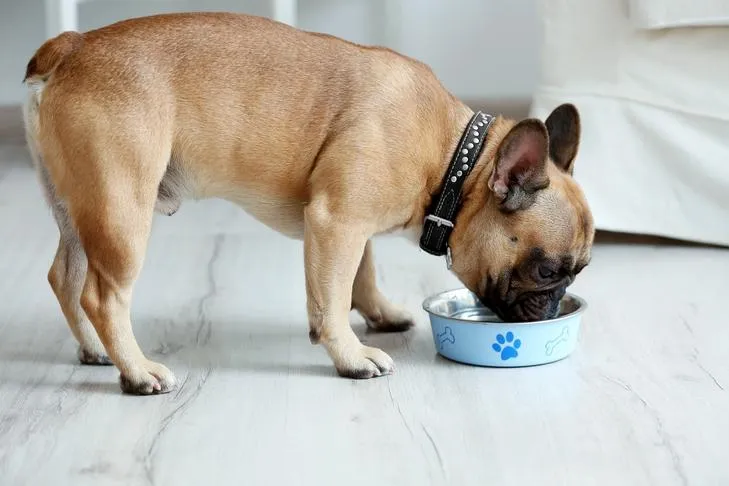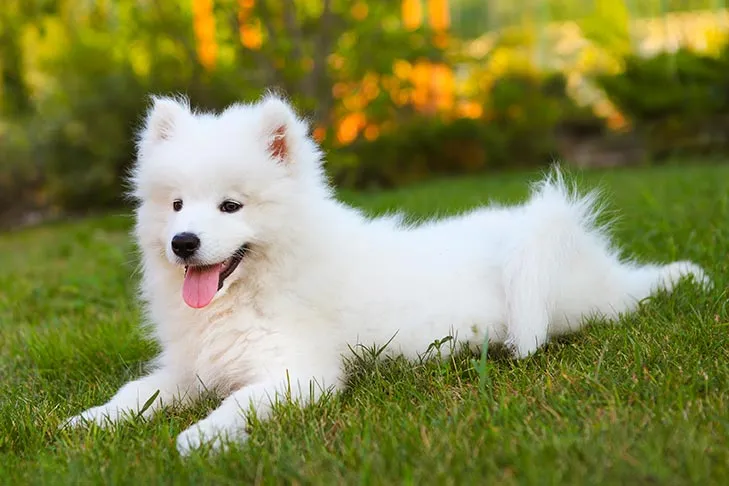In moments of scarcity or intense curiosity, the thought might cross your mind: “Can I eat my dog’s food?” While the idea might seem outlandish to some, it’s a question rooted in practicality for others, especially during emergencies or times of economic hardship when conventional food sources are limited. Pet owners often share table scraps with their canine companions, leading to a natural wonder if the reverse is also acceptable. This article delves into the complex answer to “What Dog Food Is Safe For Human Consumption,” exploring the technical edibility, significant nutritional discrepancies, and inherent health risks that make routine consumption of dog food ill-advised for humans. Understanding these distinctions is paramount for ensuring both your health and the well-being of your beloved pets. While many human foods are safe for dogs, understanding what table foods are safe for dogs is crucial for pet owners.
Is Dog Food Technically Edible for Humans?
The short answer is nuanced: in an extreme emergency, a small, short-term amount of dog food is unlikely to cause immediate harm to a healthy adult. This is primarily because commercial dog food is typically made from ingredients that are technically safe for human consumption, such as animal byproducts, grains, soybeans, vitamins, and minerals. These ingredients, if properly cooked, processed, and stored, are not inherently toxic. However, it’s critical to understand that “technically edible” does not equate to “intended for human consumption” or “nutritionally appropriate.” Dog food is formulated with the specific dietary needs of canines in mind, and these differ significantly from human nutritional requirements. It’s not subjected to the same stringent production standards and regulations as human food, which introduces a range of concerns regarding safety and nutritional adequacy for people.
Key Differences: Why Dog Food Isn’t Human Food
The primary reason dog food is not suitable for a human diet lies in the fundamental differences in nutritional requirements between species. Dogs and humans have evolved with distinct metabolic processes and dietary needs, leading to vastly different ideal nutrient profiles.
Nutritional Imbalances
One of the most significant disparities is Vitamin C. Humans are unable to synthesize vitamin C and must obtain it through their diet to prevent conditions like scurvy. Dogs, however, can produce vitamin C in their liver, so it’s not a necessary component in their food formulation. Relying on dog food as a primary nutrient source would therefore put humans at risk of severe vitamin C deficiency over time.
Another concern is Vitamin K3, or menadione. While perfectly safe and even beneficial for dogs, research suggests that this synthetic form of vitamin K can be toxic to humans in high doses. Although the amount in commercial dog food is generally low, long-term or regular consumption by humans is not advisable without knowing the precise quantity of K3 present.
Beyond specific vitamins, the overall macronutrient ratios in dog food are tailored for canines. Dog food often contains higher levels of fat and protein than the average human diet requires, along with different carbohydrate ratios. While these are essential for a dog’s energy and health, they are not balanced for human physiological needs and could lead to dietary imbalances if consumed regularly. Similarly, levels of other micronutrients, such as Vitamin A and calcium, may be higher than recommended for humans in dog food formulations. Just as owners carefully consider what to give my dog to eat to ensure balanced nutrition, humans must consider their own specific dietary needs.
Ingredient Quality and Byproducts
The types of ingredients found in commercial dog food also highlight why it’s not suitable for humans. Many dog foods incorporate animal byproducts, which can include ground bones, skin, organs, and other meat scraps deemed unfit for human consumption. While these are nutrient-dense and beneficial for dogs, they are often unappetizing to humans and not typically part of the human food supply chain. This distinction between “feed grade” and “human grade” ingredients is crucial. “Feed grade” products are solely for animal consumption, while “human grade” foods are made with ingredients considered fit for human consumption and produced under human food safety standards.
The Hidden Health Risks of Eating Dog Food
Beyond nutritional imbalances, there are several significant health risks associated with human consumption of dog food, even in seemingly benign scenarios.
Foodborne Illness
One of the most pressing concerns is the potential for foodborne illness. Dog food, much like human food, can be contaminated with harmful bacteria such as Salmonella, E. coli, Listeria, and Campylobacter. The regulatory standards for pet food are less stringent than those for human food, meaning there might be a higher risk of bacterial presence or cross-contamination during processing. This risk is particularly elevated with raw dog food diets, which are explicitly not recommended for human consumption due to the high likelihood of pathogen exposure. Even fully cooked kibble or canned wet food can inadvertently become contaminated during production, leading to illness.
 An All American Dog resting its head on a kitchen table, looking inquisitively at a piece of cheese.
An All American Dog resting its head on a kitchen table, looking inquisitively at a piece of cheese.
Long-Term Health Consequences
Regular or long-term consumption of dog food by humans can lead to a cascade of serious health issues. As mentioned, nutritional deficiencies are a major concern, potentially causing conditions like scurvy due to inadequate vitamin C intake. A lack of dietary fiber, common in many dog foods, can also lead to gastrointestinal problems, while nutrient imbalances can compromise immune function. Furthermore, prolonged exposure to certain additives, like menadione, could have toxic effects on human organs. In severe cases, imbalanced nutrition and exposure to unsuitable ingredients can result in organ damage and chronic malnutrition. Similar to how certain foods might affect canine digestion, necessitating knowledge of what can dogs eat to make them poop, human consumption of dog food can lead to gastrointestinal problems.
Vulnerable Populations
Certain groups are at a significantly higher risk and should strictly avoid consuming dog food. Children are more susceptible to complications from foodborne illnesses and choking hazards from kibble. Individuals with weakened immune systems, such as the elderly, those with chronic illnesses, or pregnant women, also face heightened risks due to their compromised ability to fight off infections. If accidental consumption occurs, especially with a child, it is crucial to contact a pediatrician or poison control immediately. This strict distinction highlights why understanding what foods can chihuahuas not eat is vital for preventing harm to our pets.
Understanding “Human-Grade” Dog Food
The term “human-grade” has become increasingly popular in the pet food industry. It refers to dog food products where all ingredients are considered fit for human consumption, and the entire manufacturing process, from storage to handling and production, adheres to the same strict food safety regulations as human food facilities. This means that the food is produced in facilities registered and inspected by relevant authorities to ensure human food laws are followed.
 A French Bulldog eating from a bowl at home, demonstrating a dog's typical mealtime.
A French Bulldog eating from a bowl at home, demonstrating a dog's typical mealtime.
While human-grade dog food offers a higher standard of ingredient quality and safety, it’s essential to reiterate that it is still formulated for dogs, not humans. Even with the highest quality ingredients, the nutritional balance—protein, fat, carbohydrates, vitamins, and minerals—is specifically designed to meet canine dietary needs, which differ fundamentally from human requirements. Therefore, while a human-grade option might be the “cleanest and safest” if you must consume dog food in an emergency, it is by no means a suitable long-term dietary solution for people. It will still likely lead to nutritional deficiencies over time.
 A Samoyed puppy laying in the grass outdoors, representing a healthy, well-cared-for pet.
A Samoyed puppy laying in the grass outdoors, representing a healthy, well-cared-for pet.
When Curiosity Strikes: A Better Approach
Given the significant risks and nutritional inadequacies, the best approach is to avoid consuming dog food altogether. If you find yourself in a situation where food is scarce, prioritize finding human-appropriate emergency food options. These are specifically designed to provide the necessary nutrients for human survival and are produced under appropriate safety standards.
For everyday curiosity, remember that your dog’s food is formulated for their unique needs, just as your diet is formulated for yours. If you’re concerned about your pet’s nutrition or think they might have consumed something harmful, consulting a veterinarian is always the best course of action. Similarly, if a human, especially a child, accidentally eats dog food, seek medical advice promptly.
Conclusion
In conclusion, while dog food is technically edible for humans in small, short-term emergency situations, it is categorically not safe or recommended for regular human consumption. The core reasons are multifaceted: significant nutritional imbalances, including a lack of essential human vitamins like C and potential toxicity from canine-specific additives like menadione, coupled with the ever-present risk of foodborne illness due to less stringent regulatory standards for pet food. Even “human-grade” dog food, while offering superior ingredient quality, remains nutritionally tailored for dogs and not for the complex needs of the human body. For the health and safety of yourself and your family, it is always best to maintain separate diets for humans and pets, relying on expert guidance for both. Prioritize food safety and nutritional adequacy for all members of your household, furry or otherwise. While you might wonder about your dog’s food, it’s safer to stick to human-appropriate diets and leave the specialized formulations for your pets, much like considering what does cheese do to a dog before offering them a treat.
